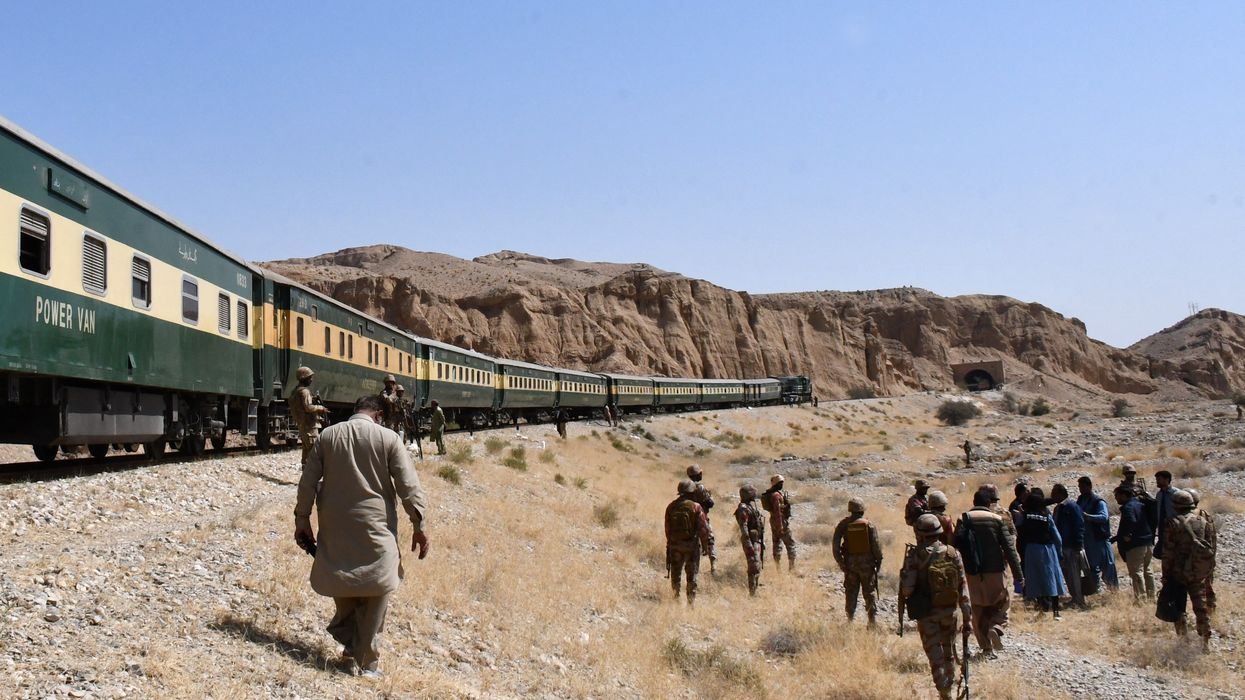PAKISTAN’S volatile Balochistan province ordered the closure of three universities in recent weeks due to “security concerns,” an official said on Tuesday (18), as separatist attacks surge in the region.
Two universities in the provincial capital of Quetta were ordered to close for an “indefinite period” last week, while on Tuesday, a third was instructed to switch to virtual learning, a provincial administration official said on condition of anonymity as he was not authorised to speak to the media.
“The decision was made after reviewing the overall security situation,” the official said
“It was decided to switch to virtual learning until further notice due to security concerns.”
The decision to reopen the campuses, which will impact thousands of students, will be made after the festival of Eid, just two weeks away, the official said.
Security across the provincial capital has been heightened, with an increased number of security forces on the streets and additional checkpoints set up throughout the city following the recent surge in separatist violence.
Last week, ethnic Baloch separatists attacked a train with 450 passengers on board, sparking a two-day siege during which dozens of people were killed.
And last Sunday (16), at least five paramilitaries were killed in a vehicle-borne suicide attack.
The assaults were claimed by the Baloch Liberation Army (BLA), one of a number of separatist groups that accuse outsiders of plundering natural resources in Balochistan near the borders with Afghanistan and Iran.
The death toll from the militant hijacking of a train in Pakistan’s southwestern mountains rose to 31 soldiers, staff and civilians, the military said last Friday (14) as it accused India and Afghanistan of backing the insurgents.
The separatist Baloch Liberation Army released a statement saying its fighters had escaped with 214 hostages and since executed all of them, without giving any evidence to back that up.
Militants took over the Jaffar Express in a remote mountain pass in Balochistan province, blowing up train tracks in the attack then holding passengers hostage in a day-long standoff.
Army spokesperson Ahmed Sharif Chaudhry said soldiers killed 33 of the insurgents, rescued 354 hostages and brought the siege to a close. He added there was nothing to suggest the BLA had taken other hostages from the scene.
A final count showed 23 soldiers, three railway employees and five passengers had died in the attack and rescue mission, Chaudhry said, up from a previous estimate of 25 casualties.
He added that Pakistan had evidence that India and Afghanistan had backed the insurgents, echoing accusations made by the foreign ministry after the attack.
Both countries denied the accusation.
The BLA released a statement in response to the army, saying it had killed all the hostages in its custody. Pakistani officials have accused the group of making exaggerated claims in the past.
“This battle is not over yet but has intensified,” the BLA said in its statement.
The BLA is the largest and strongest of several ethnic Baloch insurgent groups which have been fighting for decades to win independence for the mineral-rich province, home to major China-led projects including a port and gold and copper mines.




